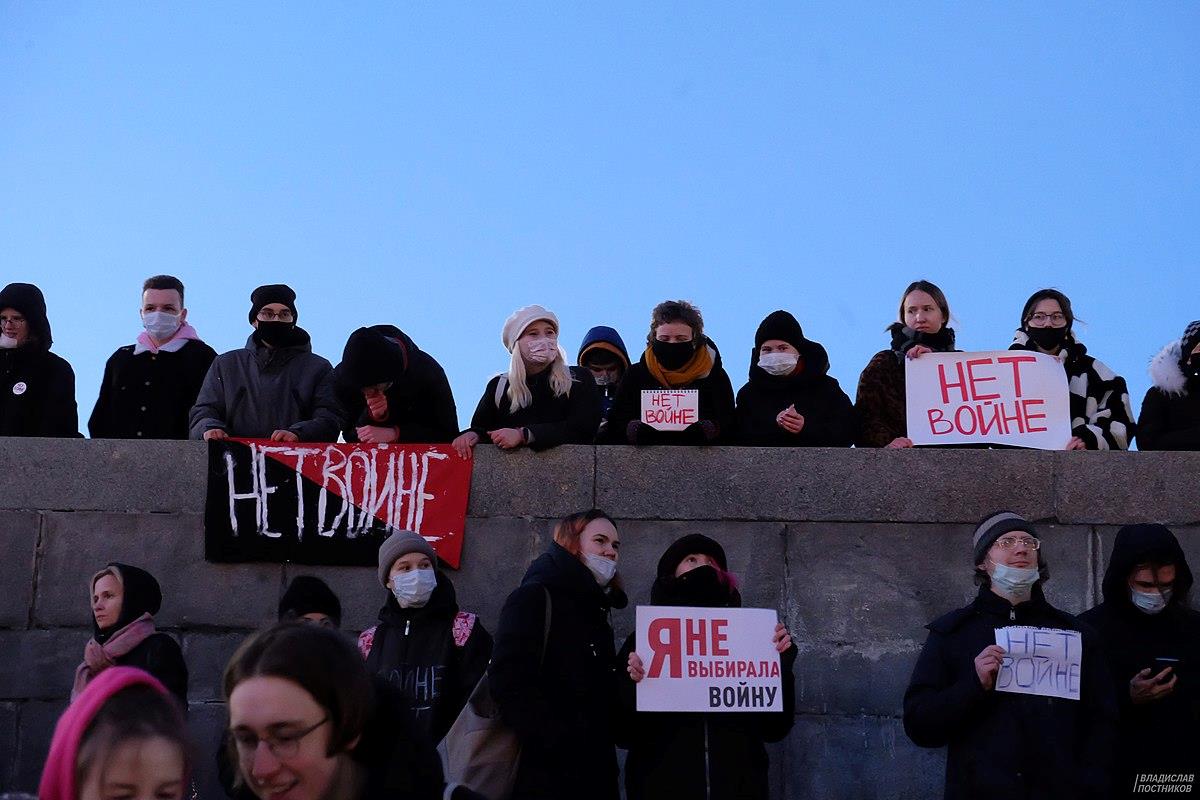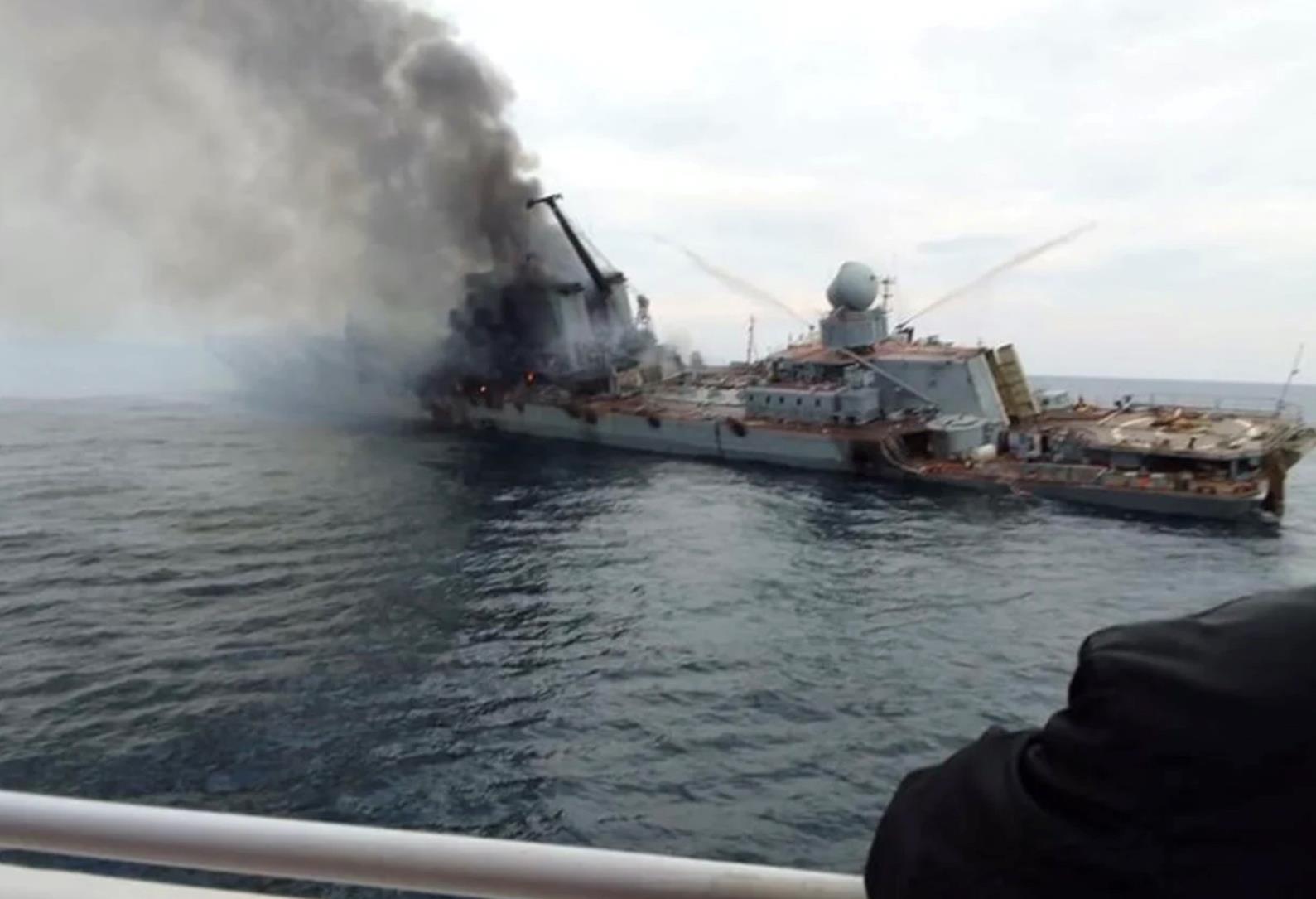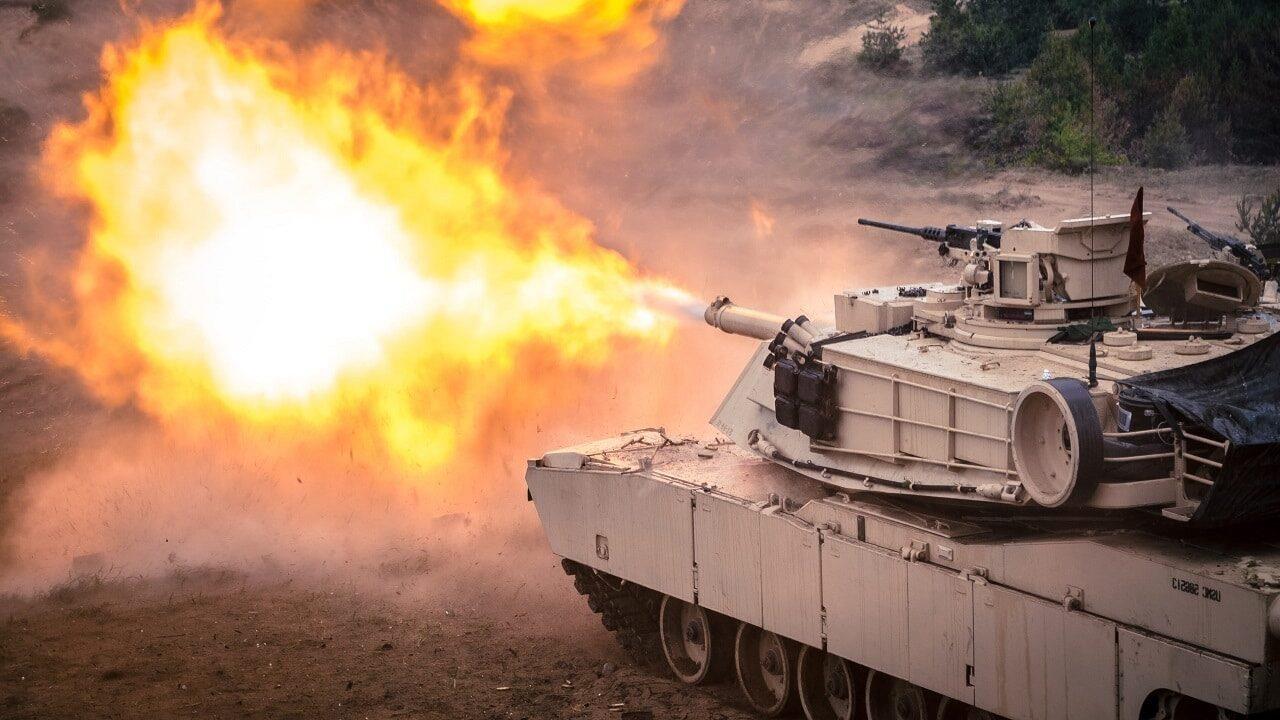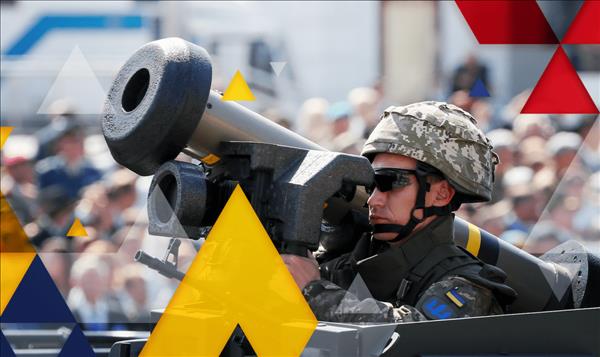
Why US-NATO Can't Let Russia Win
NATO meets in Madrid on June 28. As the West's peace camp increases its din, it's a good moment to consider the consequences of a Ukrainian defeat. They would be catastrophic.
Any peace that secures Russian assent will be tantamount to Russian victory. Russian victory will divide and in time destroy the Atlantic Alliance, severely weakening the United States' long-term position in Eurasia.
Putin may not have entered this war with grandiose ambitions vis-a-vis NATO. But his war has become his defining policy action. The West should understand that Russian victory would fundamentally transform the Eurasian order.
100 Hours to 100 DaysDespite predictions that the conflict would last under 100 hours, the Ukraine war has now entered its sixth month. The United States and its allies have settled into a complacent rhythm, defining the conditions of a limited war.
NATO and its global partners provide some military equipment and training and some intelligence support, Ukrainians accept that the West will not combat Russia directly and Russia restricts combat operations to Ukraine.
Nevertheless, the cracks in the Western coalition are starting to show. France, Italy and Germany are the weakest links. France has provided tangible military support, but Emmanuel Macron, ever the aloof, genteel intellectual-bureaucrat, has signaled his desire to terminate the war without“humiliating” Russia.
Germany's Olaf Scholz, despite his government's defense spending injection, has permitted the delivery of only token supplies and has effectively stalled major support. Italy's proposed four-point peace plan reflects the deep desire within its governing coalition to end the conflict.
Germany and Italy together have opened ruble accounts to purchase Russian gas. And even Europe's more stalwart members still purchase Russian petrochemicals, albeit rebranded as the product of Latvia or some other non-oil-producing country.
Public discourse has also shifted against Ukraine. The Kremlin failed to achieve its central objective, capturing Kiev and installing a quisling regime over Ukraine. But it has succeeded in one manner: Ukraine now has no international port access, and the country is entirely beholden to Western economic and military support to survive.
By focusing on a small slice of the Donbas, specifically between Slovyansk-Kramatorsk and Severodonetsk-Lysychansk, Russia hopes publicly to demonstrate the hopelessness of Ukrainian resistance to the West, thereby encouraging the gathering dove flocks in Western Europe and North America to pressure Kiev into accepting Russian conquests.
In reality, the war still favors Ukraine – as the use of long-range US artillery is starting to show in the Donbas.
Russia's incremental gains in the Donbas were purchased at a high price: It has thrown nearly all of its battered combat formations into Severodonetsk and its environs. But Severodonetsk is no Austerlitz. By employing tactics reminiscent of the Great War – a creeping bombardment behind which Russian soldiers can advance – Russia has achieved some success.
But it is eminently clear that the Russian armed forces lack the reserves to exploit, and in many cases even generate, a decisive breakthrough, complicating the long-predicted“encirclement” of Ukrainian forces in the Donbas.
Ukraine, meanwhile, has depth on its side. After Severodonetsk, it can hold Lysychansk, bloodying Russian forces that cross the Siverskyi Donets to assault the city from its high ground.
If Russia jeopardizes that position by pushing the Bakhmut-Lysychansk road, Ukrainian forces can withdraw to the ridge between Bakhmut and Kramatorsk, another natural defensive position.
Finally, the Ukrainians can defend Slovyansk and Kramatorsk themselves, a conurbation with a combined population well over 250,000. Barring a collapse in Ukrainian morale, it will take Russia weeks, more likely months, to drive Ukraine from the Donbas.
All the while, new Ukrainian recruits are drilling with Western equipment – and this equipment is coming, albeit slowly.
It is not, as some analysts have argued, that Ukraine wishes to regenerate its entire maneuver force with Western weapons – but that it must equip hundreds of thousands of men, something like 40-plus maneuver brigades alongside support units and artillery, with heavy weapons to ensure its victory.
Russia, meanwhile, already approaches a manpower wall, absent mobilization. The Russian army is already offering huge incentives for short-term contracts, something on the order of a year's pay in three months, and has begun deploying its third-line battalion tactical groups (BTGs) from covert mobilization.

Anti-war protest in Russia, 2022. Photo: Wikipedia
Even with this, recruiting stations are sabotaged – and Russia still faces a numerical issue. Putin avoided mobilization on May 9, recognizing the risks it poses to his regime.
Giving hundreds of thousands of disgruntled Central Asians, Siberians and Caucasians weapons, and shipping them through Moscow, is a recipe for a February revolution. But at a certain point, he must mobilize if he wishes to continue the fight.
Putin's current emphasis on cultivating Western despair is an attempt to terminate the war before Russia must mobilize. Western support for Ukraine has become a core pillar of Ukrainian morale. If the West backs out, Ukrainian President Volodymyr Zelensky must capitulate.
Indeed, the entirety of Russia's strategy has had an informational bent. Its attempt to overwhelm Ukraine early in the war, striking targets across the country and invading along six distinct axes, was meant to signal to the West that Russia would march into Kiev within days, driving the ever-perfidious homosexual-drug-addicted-Jewish-Nazi Zelensky into exile.
Support should have been fruitless. Russia's 40-mile column, whether a supply convoy or combat formation, was meant to demonstrate the sheer weight of the Russian Bear.
Russia's missile strikes throughout Ukraine, nuclear threats and hypersonic weapons tests are still meant to showcase Russian technical-material superiority and resolve. The Donbas campaign displays Russia's true strength – its ability to pulverize cities brick by brick.
Russia cannot win conventionally. It must win informationally.
Eurasia unboundThere should be no mistake. A peace settlement prior to a major Ukrainian counteroffensive that retakes significant territory – at least all of Kherson Oblast, and perhaps some of Zaporizhzhia and Donetsk oblasts – is a Russian victory.
The Kremlin has made its conditions clear for a settlement in word and deed. It will not cede territory it has conquered: Russian“passportization” has set the conditions for Kherson and Zaporizhzhia oblasts' absorption into Russia, likely alongside the Donbas. Sanctions must be removed, and Russia reintegrated into the global economy.
Perhaps it will allow a loose security guarantee, particularly if France and Germany are key guarantors. But it will undoubtedly demand limits on Ukrainian combat capacity and Western military assistance to neuter Ukraine's self-defense abilities.
After licking its wounds and rebuilding military capacity, it will return and finish the job in Ukraine, whether in three months or three years, finally installing a pliant regime and potentially annexing the country outright.
However, there is an evolution in Putin's policy between February 24 and today.
Putin's invasion had two motivations: the toxic version of Russian nationalism to which he subscribes, and the more pedestrian fear of Kiev's future assertiveness. These spring from his two fundamental motivations:
- his conception of Russia's historical mission and his place in it, and
- his desire to secure his regime.
Under Putin's conception of history, expressed consistently from his 2007 Munich Security Conference Speech through to his July 2021 essay“On the Historical Unity of Russians and Ukrainians,” Russia is a unique civilization and the true shield of civilized values.
It was Russia that defeated the Mongols in 1380, shattering the Golden Horde's control of Eastern Europe. It was Russia that humbled Poland in the early 17th century. It was Russia that broke Swedish power in the Great Northern War. It was Russia that doomed Napoleon's European empire. And it was Russia that wiped Nazism from Europe's soul.
In each case – as Putin sees it – Russian blood cleansed a decadent, effete and weak Europe. Yet the Europeans persistently refuse to recognize Russia as the only power worthy of great power status in Europe. Nor do those in Russia's sphere grasp the obvious superiority of Russian culture, language and history.
This Russia, in Putin's view, has a right to assert itself and is the only power with interests and territories beyond Europe with a right to shape European security.
Hence Putin's comparison to Peter the Great in his recent remarks on the 350th anniversary of the Tsar's birth. Peter transformed Russia from a marginal principality on the European periphery, a state more Asian than European, into an empire with a central role in European and Eurasian political affairs.
Uniting the Russian peoples is crucial to fulfilling this vision. The Soviet Union's collapse – and the Soviet Union's mistakes – divided the Rus' into Belarussians, Ukrainians and Russians. This historical mistake must be corrected on purely cultural-ideological terms. Ukraine, Belarus and Russia must be reunited.
Putin's obsession with Nazism and the supposed oppression of Russian speakers and ethnic Russians in Ukraine stems from this reading of history. Anyone opposed to the unity of the Russian people must be a Nazi, the enemy that came closest to destroying the Rus'.
The simple Ukrainian desire for independence and identity is not an expression of national feeling, but evidence of Nazi penetration into the Ukrainian state, which actively oppresses its predominately Russian-speaking population. Never mind that the first to take up arms against Russia in 2014 were those Eastern Ukrainians who Putin sought to protect.
While the broader paradigm of Russian superiority encouraged Putin's aggression, contingent factors drove Putin to war on February 24. Zelensky, elected on a peace platform and promising a resolution to the Donbas War, quickly transformed into an implacable foe.
The Ukrainian armed forces, meanwhile, were expanding their combat capabilities. Ukraine's Neptune anti-ship missiles were due to be fielded in numbers midway through this year.
Their sinking of the Moskva demonstrates the threat they would have posed to Russia in large numbers. Ukraine's integration of UCAVs and artillery would also provide a decisive advantage over the Donbas separatists.

Russia's Moskva warship lists after a missile attack in April 2022. Image: Twitter / CBS News / OSINT Technical / Screengrab
Given the supposed Banderite co-optation of Ukrainian politics, a Nazi war of aggression against the Donbas – and perhaps Crimea – was conceivable in the near future. If the timing coincided with Putin's 2024 election bid, Russia's Maximum Leader might have been jeopardized.
Russia's initial campaign plan, prepared under the utmost operational security in Putin's view, failed for multiple reasons – not in the least the Kremlin's assumption, driven by poor intelligence, that a significant proportion of Ukrainian forces would surrender or defect.
However, it was also meant to shock the West, preventing it with a fait accompli that demonstrated Russian military superiority. Indeed, as noted, every major Russian action – from the initial assault to its Kiev column to its punishing bombardment in the Donbas – is meant to convince the West that arming Ukraine is futile.
In this respect, Western resolve has shocked Putin and the Kremlin. They have prompted a shift in objectives – yet not the shift one would expect.
Rather than reducing his exposure, cutting his losses and negotiating a token peace, Putin has doubled down on his strategic position. Regime security certainly motivates this.
The domestically relevant Russian nationalist lobby demands a smashing victory to justify the costs of the Ukraine War, while anything short of this threatens to turn Putin into Boris Yeltsin after Chechnya.
Again, the least Putin can accept is a position in which Russia holds its gains in Ukraine's south and the entire Donbas, and in which Ukraine is demilitarized and left vulnerable to another assault.
In the long term, Putin almost certainly planned on a confrontation with the West, one that would shatter NATO and secure Russia's long-term strategic position in European Eurasia. Ukraine was to prepare for this confrontation.
By incorporating Belarus and Ukraine into a revitalized Russian empire, Putin would expand Russia's population by over a third and its gross domestic product (GDP) by a seventh.
It could then snap up Moldova and Georgia, bully Azerbaijan into its orbit and solidify a concrete tributary relationship between Moscow and Central Asia's post-Soviet republics, co-opting their resource wealth as Moscow has done to Asian Russia.
This bloc would be capable of confronting the West, ideally with Chinese assistance. Russia would manufacture another crisis in the Baltic or Black Sea, stir up trouble in the Balkans and exploit divisions between Western and Eastern European NATO over their willingness to shed blood in defense of Europe.
Italian, French and German spinelessness would be exploited. Russian naval capabilities in the High North and Eastern Mediterranean would be used to pressure Europe, and Russian nuclear capabilities – and ideally concurrent Chinese action against Taiwan – to terrify the United States.
A long-term confrontation with NATO over Ukraine, however, has changed Putin's calculations. Russia cannot win a multi-year war. Per the Central Bank of Russia's own admission, the war's economic costs will not be felt in Russia until the fall or early winter, when Russia's currency reserves dry up.

Chinese President Xi Jinping and Russian President Vladimir Putin share a toast. Photo: AFP / Zuma
After the Chinese Communist Party (CCP) Conference, Xi Jinping's support will become more public, assuming he retains power. But China is unlikely to prop up the Russian state indefinitely.
Indeed, it may simply leave Russia to its fate given the extent of economic damage, snapping up the juiciest morsels of the Russian economy and leaving the rest to collapse.
Russian mobilization would provide more combat power – but also would risk revolution. A peace agreement less than that outlined above raises the odds of a palace coup. Nuclear use may terminate the conflict, but that carries severe risks.
By robustly supporting Ukraine, NATO has effectively entwined its alliance cohesion with Ukraine's fate. Eastern European NATO has warned Western European NATO since 2014 that Ukraine was at risk of invasion, and that Russia would turn on them next.
Germany, France, Italy and the EU's leadership tabled their concerns, maintained robust links with Russia and looked askance at any demands to increase military spending.
The West should now deliver more materiel – much more and much faster – if Ukraine is to drive Russia back within the next year. But it has sustained Ukraine through this war. Absent NATO intelligence and military and financial support, Ukraine may have survived the initial Russian onslaught but over time it would have collapsed.
If Putin simply grinds through Ukraine despite NATO's best efforts, the Atlantic Alliance can survive and resist. But if Ukraine's defeat stems from insufficient NATO support or, worse, Western European pressure on Ukraine to accept a crippling peace, Eastern European NATO will crumble.
Right-wing populism, skeptical of NATO and the EU, is already a powerful force. Hungary's Fidesz is simply its most powerful and explicitly pro-Kremlin variant. Poland, Romania and Bulgaria would all experience spikes in anti-NATO far-right activity. Serbia would capitalize, pushing to absorb Bosnia's Serbian portion.
The Balkan States would find little support from NATO. Sweden and Finland would be isolated and vulnerable despite their membership in the Atlantic Alliance.
Western European NATO demanding concessions from Ukraine for peace would destroy the Atlantic Alliance. At a minimum, it would roll back NATO to its 1991 borders, potentially including the Czech Republic and“eastern” Germany.
But in this case, with a rising China and an America absent the desire to defend Europe, why not make a separate peace with the Kremlin, a Chinese ally?
To let NATO dissolve in this manner would destroy a coherent anti-Chinese policy. It would elevate Chinese power, giving the CCP greater access to power grids and shipping hubs throughout the Mediterranean. It would preclude American or allied presence in the Middle East – the Mediterranean would become a Russian lake.
And it would obviate any long-term economic pressure against China. The Western Europeans would be entirely unwilling to mortgage their economic viability on the hope of an American Indo-Pacific victory.
Thus does the fate of Eurasia hang on Kiev's survival.
What is to be done?The United States has two paths ahead of it. Either it ensures NATO morale and its commitment continues – seeing Ukraine through this difficult phase of combat and providing Ukraine with the support it needs to drive Russia from its territory – or it actively plans for a much smaller global role restricted to the Indo-Pacific, and accepts a separate peace with Russia and Russian domination of Eastern Europe.
The latter option, contra those who wish the US to abandon Europe wholesale and focus entirely on the Indo-Pacific, is far too risky. The United States cannot pressure China economically without European support. Nor can it contain Chinese ambitions in the Middle East and the Mediterranean without access to European Eurasia.
The collapse of the European alliance system would trigger an equivalent realignment in the Middle East, virtually ceding Eurasian dominance to a Sino-Russo-Iranian coalition and obviating the Taiwan question.
This would not be immediately apparent: Japan, Australia, South Korea and other states within or affiliated with the US-led anti-Chinese coalition would not immediately make a separate peace.
But hostile control of Europe and the Middle East would jeopardize the economic position of the Asian powers in a Sino-American confrontation far more fundamentally than even the inevitable global economic meltdown a cross-strait conflict would trigger.
At some point, Japan and Australia would realize the jig is up. India would, as well. Perhaps it might triangulate with Russia, but this would provide no relief to US interests in Asia.
Thus the first option is the only viable choice. The United States must, at any cost, keep Ukraine in the fight.
This is not simply an issue of weapons deliveries, although the US must expand and revamp its military-industrial complex sufficiently to serve as the arsenal of democracy and defeat China when it seeks to subjugate Taiwan.

M-1 Abrams tank firing. Photo: Creative Commons
It is rather an issue of will. Western European NATO cannot be allowed to break ranks. Rather, those countries must help shoulder the burden of European defense – not with their sons and daughters, but with their defense industries.
The Atlantic Alliance's Western European members must be convinced to expand their defense production and deliver Ukraine the quantities of heavy weapons it requires to drive through to victory.
Only then can negotiations lead to a durable peace – only after Russia is driven out of Ukraine's south, and ideally back to the pre-February 24 borders, can a settlement be reached.
This will require a consistent NATO military commitment that deters Russian horizontal escalation. But the central question is spiritual: NATO must have the resolve to see the war through.
Some damn little thing in the Balkans failed to spark yet another world war in 1999. It is, for the sake of parallelism, some damn big thing in Ukraine that calls up this possibility.
This is the decisive confrontation. Prudence dictates resolve, not passivity. The NATO meeting in Madrid is an excellent occasion to show resolve.
Seth Cropsey is the founder and president of the Yorktown Institute. He served as a naval officer and as deputy undersecretary of the Navy and is the author of Mayday and Seablindness. Follow him on Twitter @sethcropsey

Legal Disclaimer:
MENAFN provides the
information “as is” without warranty of any kind. We do not accept
any responsibility or liability for the accuracy, content, images,
videos, licenses, completeness, legality, or reliability of the information
contained in this article. If you have any complaints or copyright
issues related to this article, kindly contact the provider above.


















Comments
No comment